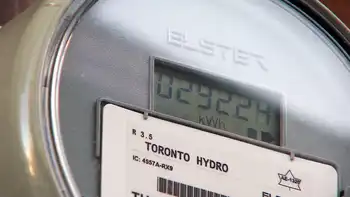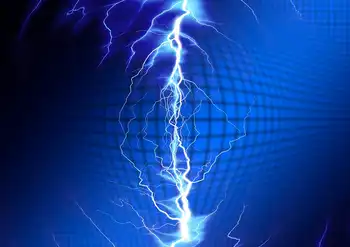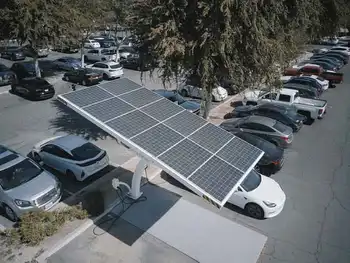Meter-reading to go 'Jetsons' in Apopka
APOPKA, FLORIDA - No more trampled azalea beds. No more attacking dogs. The meter reader is going the way of the milkman.
Instead, information on the water and sewage use of about 22,500 Apopka utility customers will soon be beamed on radio waves directly from their yards to the utility department.
Consumption will be measured by digital meters that send a radio signal to one of two towers, which will then send the information to a central city office.
"It really is sci-fi stuff," said Bob Lutz, a district manager for Sensus Metering Systems, which is retrofitting Apopka's meters. "This is like going from the Flintstones to the Jetsons."
The $3 million project was approved at a recent City Council meeting and will take about a year to complete. The change will involve outfitting the 22,500 "touch-pad" meters at homes and businesses with a radio transmitter.
The new system, known as FlexNet, uses an FCC-licensed radio frequency to transmit signals from a meter to a tower as far as eight miles away.
Lutz said Apopka is the first jurisdiction in Florida to use the FlexNet system, though he has heard of other cities using similar technology.
The impending upgrade is good news for meter reader Thomas Gallion, who checks water and sewer usage by going from house to house with a wand he touches to the top of each meter. Typically, he said, it takes a day or two to check 400 to 700 meters.
"I do get attacked by dogs, occasionally," Gallion said. "The first month I was out on my own, I was chased up the back of my truck by three pit bulls." The new system will cut down on those harrowing moments, he said.
"It'll be great. It'll save us from having to go around (the city)," Gallion said.
Edward Bass, the city's finance director, said the three employees who currently read meters will be reassigned to other duties within the utilities department or may serve as troubleshooters when meters aren't working properly.
Bass said the new system will save the city money because it will detect water leaks and broken lines sooner.
Utilities monitoring has been moving in a high-tech direction for years.
In Central Florida, cities such as Sanford, Lake Hamilton and DeLand installed digital meters that can be read using a hand-held device that receives radio signals from up to 2,000 feet away.
Progress Energy has been installing the digital meters to monitor the electrical usage of 2.7 million customers across Florida and the Carolinas. The Florida portion of the $140 million project is expected to be completed in September.
"One meter reader can now drive by and read 10,000 meters (a day), whereas with the old method of walking by, it would have been more like 400 meters," said Kathy Small, a communications specialist with Progress Energy.
Small said the new meters are expected to cut costs by increasing employee efficiency and giving more accurate readings. The meters also will reduce energy theft, she said, because they are harder to tamper with and will alert the company if anything is amiss. Progress Energy expects about $20 million in savings a year.
"That means we don't have to pass along those extra costs to our electric consumers," Small said.
Lutz of Sensus, a former Maitland meterreader, remembers when things seemed simpler. He wrote down numbers in a book, someone punched them into a computer and a bill was sent out.
About a decade ago, Sensus started looking at other options when one of the big bosses gathered everyone in a room and asked for new ideas. "One of the old guys said, 'I want to read meters with a satellite,' " Lutz recalled.
Today, the technology is available, Lutz said, although in Apopka, "we're not going up into outer space; we're just going 300 feet up in the air."
Related News

No time to be silent on NZ's electricity future
AUKLAND - The Electricity Authority has released a document outlining a plan to achieve the Government’s goal of more than doubling the amount of electricity generated in New Zealand over the next few decades.
This goal is seen as a way of both reducing our greenhouse gas (GHG) emissions overall, as everything becomes electrified, and ensuring we have a 100 percent renewable energy system at our disposal. Often these two goals are seen as being the same – to decarbonise we must transition to more renewable energy to power our society.
But they are quite different goals and should be clearly differentiated.…




